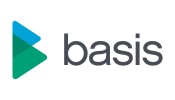A target role is used to enforce transport request dependencies between systems in different transport paths.
When creating a dependency between transport requests, Transport Expresso ensures that the dependent transport request will not be imported into a system until its dependencies have. With the configuration of roles, it is possible to assign multiple systems in different transport paths the same role. This will ensure that the dependent transport request is not imported into a system with a specific role until all its dependencies are imported into another system with the same role.
A practical application of the use of roles can be explained with an example landscape that contains an R/3 Enterprise and Business Warehouse transport path, each with Development, Quality Assurance and Production systems. By grouping the two Quality Assurance systems with a role “Quality Assurance” and the two Production systems with another role “Production”, it is possible for transport request dependencies to be upheld across the entire landscape. This can ensure a necessary change is moved into the BW Quality Assurance system, before a dependent change is moved into the R/3 Enterprise Quality Assurance system. Similarly the dependencies will be upheld when importing into the corresponding Production systems.
Target Roles are created and edited by TE Administrators via the TE Windows GUI screen configuration screen [on the Target Roles and Transport Schedules tab].



Post your comment on this topic.